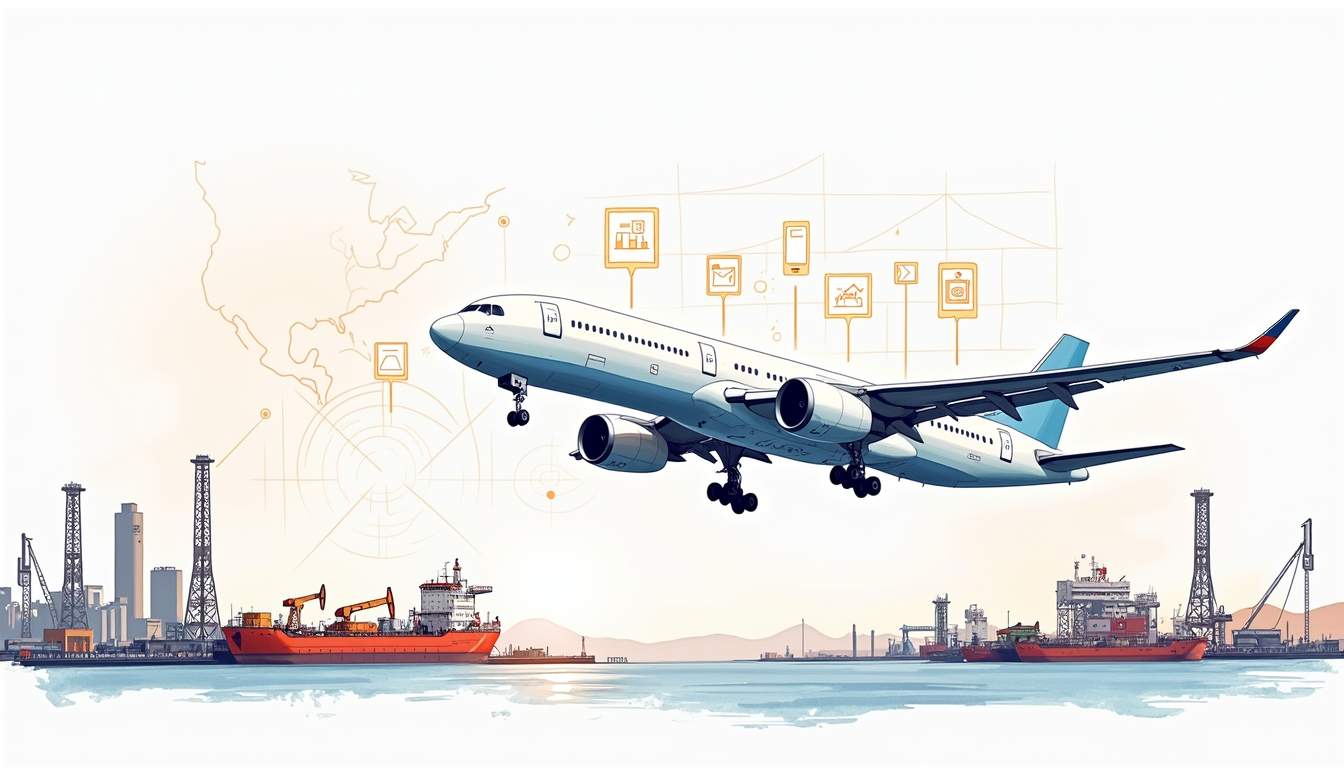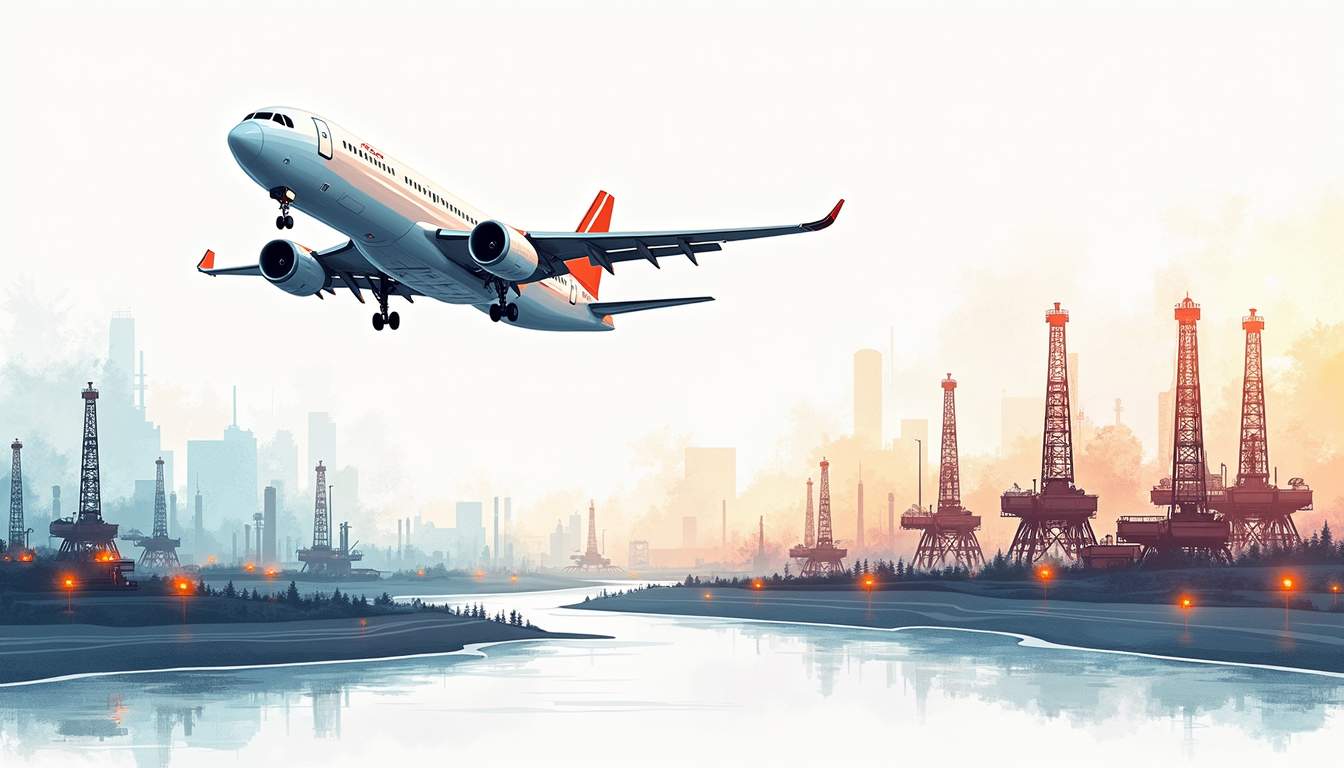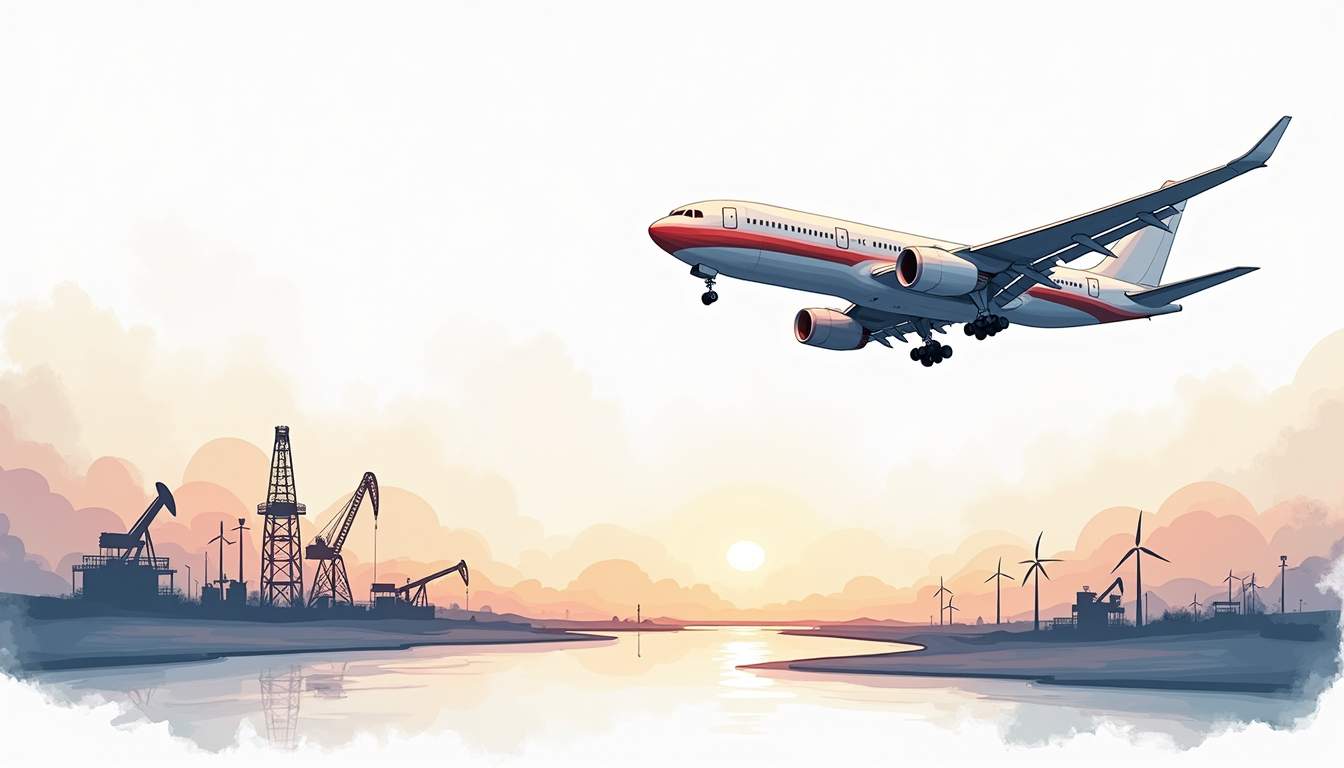In the fast-paced world of the oil and gas industry, timely delivery of equipment and supplies is crucial. Air freight has emerged as a vital logistics solution, offering speed and efficiency for transporting goods across vast distances. However, optimizing air freight operations can be a complex task, requiring careful planning and execution. This comprehensive guide delves into the strategies and best practices for optimizing air freight in the oil and gas sector.
Understanding the Unique Challenges of Air Freight in Oil and Gas
The oil and gas industry presents a unique set of challenges for air freight logistics. From the need for specialized equipment to the unpredictability of demand, companies must navigate a variety of obstacles to ensure smooth operations.
Regulatory Compliance
One of the foremost challenges in air freight for oil and gas is adhering to stringent regulatory requirements. Different countries have varying regulations regarding the transportation of hazardous materials, which includes many oil and gas products. Companies must ensure compliance with international standards, such as the International Air Transport Association (IATA) regulations, as well as local laws.
Failure to comply can lead to severe penalties, delays, and even the grounding of shipments. Therefore, it is essential to stay updated on regulations and work closely with experienced logistics partners who understand the complexities of air freight in this sector. This often involves comprehensive training for staff on compliance protocols and regular audits of logistics processes to identify potential areas of risk.
Time Sensitivity
In the oil and gas industry, time is often of the essence. Equipment failures or unexpected maintenance can lead to costly downtime. Air freight provides a solution, but it requires meticulous planning to ensure that shipments arrive on time. Companies must forecast demand accurately and coordinate closely with suppliers and logistics providers to minimize delays.
Implementing advanced tracking systems can also enhance visibility and allow for real-time updates on shipment status, helping companies make informed decisions quickly. Moreover, developing contingency plans for potential disruptions, such as weather-related delays or air traffic issues, can further mitigate risks associated with time-sensitive shipments. This proactive approach not only safeguards operations but also strengthens relationships with clients who rely on timely deliveries.
Cost Management
While air freight is faster, it is also more expensive than other modes of transport. Balancing speed and cost is a critical aspect of optimizing air freight operations. Companies must conduct a thorough cost-benefit analysis to determine when air freight is justified and when alternative transport methods might be more economical.
Additionally, negotiating contracts with air freight carriers can lead to better rates, especially for bulk shipments or long-term partnerships. Understanding the pricing structures and potential hidden costs is vital for effective cost management. Companies may also explore innovative financing options, such as leasing specialized equipment, to reduce upfront costs and improve cash flow. By strategically managing their logistics budget, organizations can ensure that they remain competitive while still meeting the high demands of the oil and gas sector.
Strategic Planning for Air Freight Operations
Effective strategic planning is essential for optimizing air freight in the oil and gas sector. This involves assessing needs, selecting the right partners, and implementing robust logistics strategies.

Assessing Transportation Needs
Before initiating air freight operations, companies should conduct a comprehensive assessment of their transportation needs. This includes evaluating the types of materials to be transported, the frequency of shipments, and the specific destinations involved.
Understanding these factors can help companies choose the most suitable air freight solutions, whether it be charter flights for oversized equipment or scheduled flights for smaller shipments. Tailoring the logistics strategy to fit specific needs can significantly enhance efficiency.
Selecting the Right Logistics Partners
The choice of logistics partners can have a profound impact on the success of air freight operations. Companies should seek partners with experience in the oil and gas sector, as they will be more familiar with the unique challenges and requirements of this industry.
Additionally, evaluating the reliability and reputation of potential partners is crucial. Companies should consider factors such as service quality, response times, and the ability to handle specialized cargo. Building strong relationships with logistics providers can lead to more effective collaboration and better outcomes.
Implementing Technology Solutions
In today’s digital age, technology plays a pivotal role in optimizing air freight operations. Implementing advanced software solutions can streamline logistics processes, enhance tracking capabilities, and improve communication among stakeholders.
For instance, using a Transportation Management System (TMS) can help companies manage shipments more effectively, providing visibility into the entire supply chain. Additionally, leveraging data analytics can assist in forecasting demand and identifying trends, enabling companies to make informed decisions regarding air freight logistics.
Best Practices for Air Freight Optimization
To maximize the benefits of air freight, companies in the oil and gas sector should adopt best practices that enhance efficiency and reduce costs.
Consolidating Shipments
One effective strategy for optimizing air freight is consolidating shipments. Instead of sending multiple small shipments, companies can combine goods into a single larger shipment. This approach not only reduces transportation costs but also minimizes the environmental impact of air freight.
Consolidation requires careful planning and coordination with suppliers and logistics partners. By aligning shipment schedules and ensuring that goods are ready for transport at the same time, companies can take full advantage of this strategy.
Enhancing Communication
Effective communication is vital in air freight operations. Companies should establish clear lines of communication with all stakeholders, including suppliers, logistics providers, and internal teams. Regular updates and feedback can help identify potential issues before they escalate, ensuring smoother operations.
Utilizing collaborative platforms can facilitate communication and enable real-time information sharing. This transparency helps all parties stay informed and aligned, ultimately leading to more efficient air freight processes.
Training and Development
Investing in training and development for logistics personnel is another key best practice. Ensuring that staff members are well-versed in air freight regulations, best practices, and technology can lead to more efficient operations.
Regular training sessions and workshops can help employees stay updated on industry trends and changes in regulations. Additionally, fostering a culture of continuous improvement encourages teams to seek out innovative solutions and enhance overall performance.
Leveraging Air Freight for Emergency Response
In the oil and gas industry, emergencies can arise unexpectedly, requiring immediate action. Air freight can play a critical role in emergency response situations, providing rapid delivery of essential equipment and supplies.
Establishing Emergency Protocols
To effectively leverage air freight for emergency response, companies should establish clear protocols outlining the steps to be taken in the event of an emergency. This includes identifying key personnel, establishing communication channels, and determining the types of equipment and supplies that may be needed.
Having a well-defined plan in place ensures that companies can respond swiftly and efficiently when emergencies occur, minimizing downtime and potential losses.
Building Strategic Partnerships
Developing strategic partnerships with air freight carriers that specialize in emergency logistics can enhance a company’s response capabilities. These partners often have the resources and expertise to mobilize quickly, ensuring that critical supplies reach their destination without delay.
Building these relationships ahead of time allows companies to streamline the emergency response process, ensuring that logistics are handled effectively when the need arises.
Future Trends in Air Freight for Oil and Gas
The air freight landscape is continually evolving, influenced by technological advancements and changing industry dynamics. Staying ahead of these trends is essential for companies looking to optimize their air freight operations.

Increased Use of Drones
One of the most exciting trends in air freight is the increasing use of drones for transporting goods. While still in the early stages of adoption, drones have the potential to revolutionize logistics in the oil and gas sector by providing rapid delivery of small equipment and supplies to remote locations.
As regulations evolve and technology improves, companies may find drones to be a cost-effective and efficient solution for certain air freight needs, particularly in hard-to-reach areas.
Sustainability Initiatives
With growing concerns about environmental impact, sustainability is becoming a key focus in the logistics industry. Companies in the oil and gas sector are increasingly seeking ways to reduce their carbon footprint, including optimizing air freight operations.
Implementing more fuel-efficient aircraft, utilizing biofuels, and exploring carbon offset programs are just a few strategies that can help companies align their air freight operations with sustainability goals.
Integration of Artificial Intelligence
Artificial intelligence (AI) is poised to transform air freight logistics by enhancing decision-making processes, optimizing routes, and improving demand forecasting. By leveraging AI technologies, companies can gain valuable insights into their operations, leading to more efficient and cost-effective air freight solutions.
As AI continues to advance, its integration into air freight logistics will likely become more prevalent, offering companies new opportunities for optimization and growth.
Conclusion
Optimizing air freight for the oil and gas industry is a multifaceted challenge that requires careful planning, strategic partnerships, and a commitment to best practices. By understanding the unique challenges of air freight, implementing effective strategies, and staying attuned to industry trends, companies can enhance their logistics operations and ensure timely delivery of critical supplies.

As the industry continues to evolve, embracing innovation and technology will be key to maintaining a competitive edge in air freight logistics. With the right approach, companies can navigate the complexities of air freight and achieve operational excellence in the oil and gas sector.
Take Your Oil and Gas Logistics to New Heights with Freighter Gator
Ready to elevate your oil and gas operations with optimized air freight solutions? At Freighter Gator, we understand the critical importance of timely and efficient cargo delivery. Our tailored air cargo charter solutions are designed to meet the unique demands of the oil and gas industry, ensuring your essential equipment and supplies arrive exactly when and where you need them. Don’t let logistics hold you back—request a quote today and experience the peace of mind that comes with Freighter Gator’s reliable and expert service.
